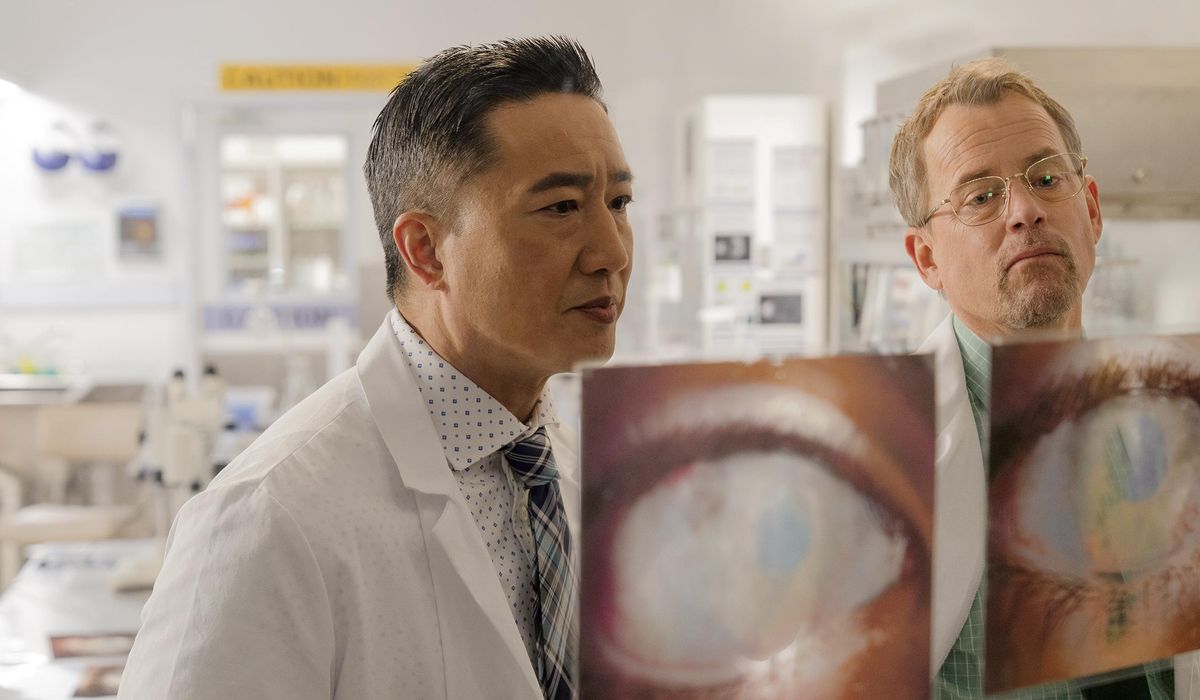


It’s not every day that an eye doctor inspires not one, but two movies. But Dr. Ming Wang is not just any eye doctor, he’s a world-renowned laser eye surgeon who overcame poverty and persecution in China to discover groundbreaking technology to restore sight for kids in need.
And it just so happens that his scientific journey as a foreign exchange student in America is also what sparked his conversion from atheism to Christianity.
Subscribe to have The Washington Times’ Higher Ground delivered to your inbox every Sunday.
“It was in a study of a human eye, at Harvard Medical School, I realized that my notion, my atheist worldview, was in crisis,” Dr. Wang recently told The Washington Times’ Higher Ground. “The human eye is so complicated, but yet it can form nearly perfectly nearly every time. It’s just impossible to form out the randomness as atheists believe.”
But Dr. Wang didn’t come to that conclusion all on his own. Thankfully, one of his professors took the time to help him understand why he was so confused and encouraged him to put the pieces together.
“He said, ‘Okay, can you imagine a random piece of metal form[ing] itself into a car?’ I said, ‘No way.’ He said, ‘How about the human eye?’” Dr. Wang recalled. “So right there, he opened a door in my life, making me realize that the reason that human eye, being so complicated, but yet can form nearly perfectly most of the time, is because it did not form out of randomness. It’s formed with a purpose so there’s a creator and designer behind it.”
SEE ALSO: Plugged In: True story ‘Sight’ shows glimpses of God; ‘Garfield’ too fast paced for kids?
“And of course, going from that point, recognizing there’s a creator, to eventually knowing that the creator has a name in Jesus Christ, that still took me many more years,” he continued. “But it is in the study of science, interestingly, that I discovered evidence for the existence of God.”
And faith was not the only thing Dr. Wang discovered all those years ago. In contemplating God’s purpose for his life, Dr. Wang felt called to use his medical knowledge and skill to help those in need — specifically, blind orphan children. It was then that he uncovered the technology to reduce corneal scarring to help restore sight.
“In one of my prayers many years ago, the idea came that perhaps the reason that unborn child can heal without scar is because the amniotic membrane that’s surrounding each unborn child,” he explained. “So I start getting donations for those placentas after mothers giving birth to children…and start doing research, and eventually developed the amniotic membrane contact lens. When we put the amniotic fetal scar-less contact lens onto injured eyes, we find indeed scars reduced [and] sight is restored.”
This discovery and Dr. Wang’s philanthropic work through his foundation, the Wang Foundation for Sight Restoration, which performs sight restoration surgeries free of charge, is the foundation of the new movie, “Sight,” which debuted in theaters March 24. The movie is based on his autobiography, “From Darkness to Sight: A Journey from Hardship to Healing.”
“I got the first patent on the technology. Then I decided I’m going to just donate to the world. I put it online and taught eye doctors from over 50 some countries how to use the technology,” he noted. “Today, amniotic membrane contact lens is a $5 billion industry worldwide, and tens of thousands of eye doctors in nearly every nation are using the technology and millions of patients have had their eyesight helped or restored.”
“I felt that God wanted me to share the invention, the technology,” he added. “And also, I didn’t really invent the amniotic membrane contact lens because I did not invent the placenta. I did not invent the amniotic membrane. As a scientist, I’m just privileged that God gave me an opportunity to get a glimpse of part of his original creation.”
SEE ALSO: Ex-atheist on Chinese persecution horror, moment he realized God’s real
In addition to inspiring “Sight,” Dr. Wang was also the basis for a character in the “God’s Not Dead” movie series. The character, Martin Yip, is a foreign exchange student and the original main character’s best friend, who eventually leaves atheism behind when he discovers Christ.
“To so many folks out there, especially people from China, most of us were atheists when we came [to America],” Dr. Wang said. “And to see how our experience [as an immigrant led to] the blessing to be able to find Christ in America [is a very powerful thing].”
And while most Americans will never know what it was like to walk a day in Dr. Wang’s shoes — from escaping China, to converting to Christianity, to performing thousands of life-changing surgeries — Dr. Wang hopes to encourage more Americans to find common ground and unite around the blessings of faith and freedom. In fact, it’s why he started the Common Ground Network, to help more people become peacemakers in our polarized world.
“We need to recognize we’re so blessed living in a country with freedom and faith. And we need to appreciate America by being more willing to overcome our polarization, to love each other, disperse the differences, and to find that common ground,” he said. “And so it may just take an immigrant, someone who used to not have freedom, to remind America how precious freedom and faith are.”
—
Marissa Mayer is a writer and editor with more than 10 years of professional experience. Her work has been featured in Christian Post, The Daily Signal, and Intellectual Takeout. Mayer has a B.A. in English with an emphasis in Creative Writing from Arizona State University.
